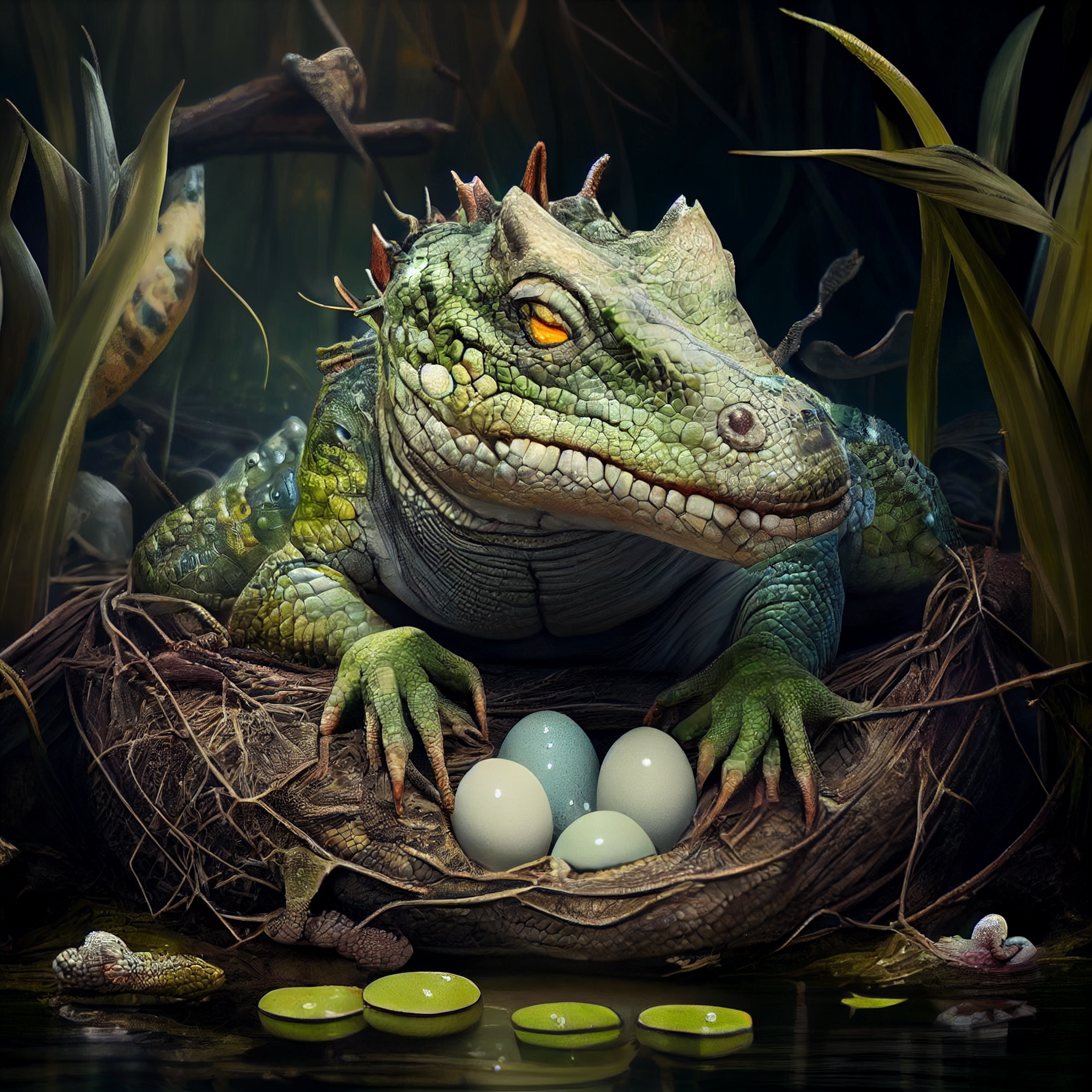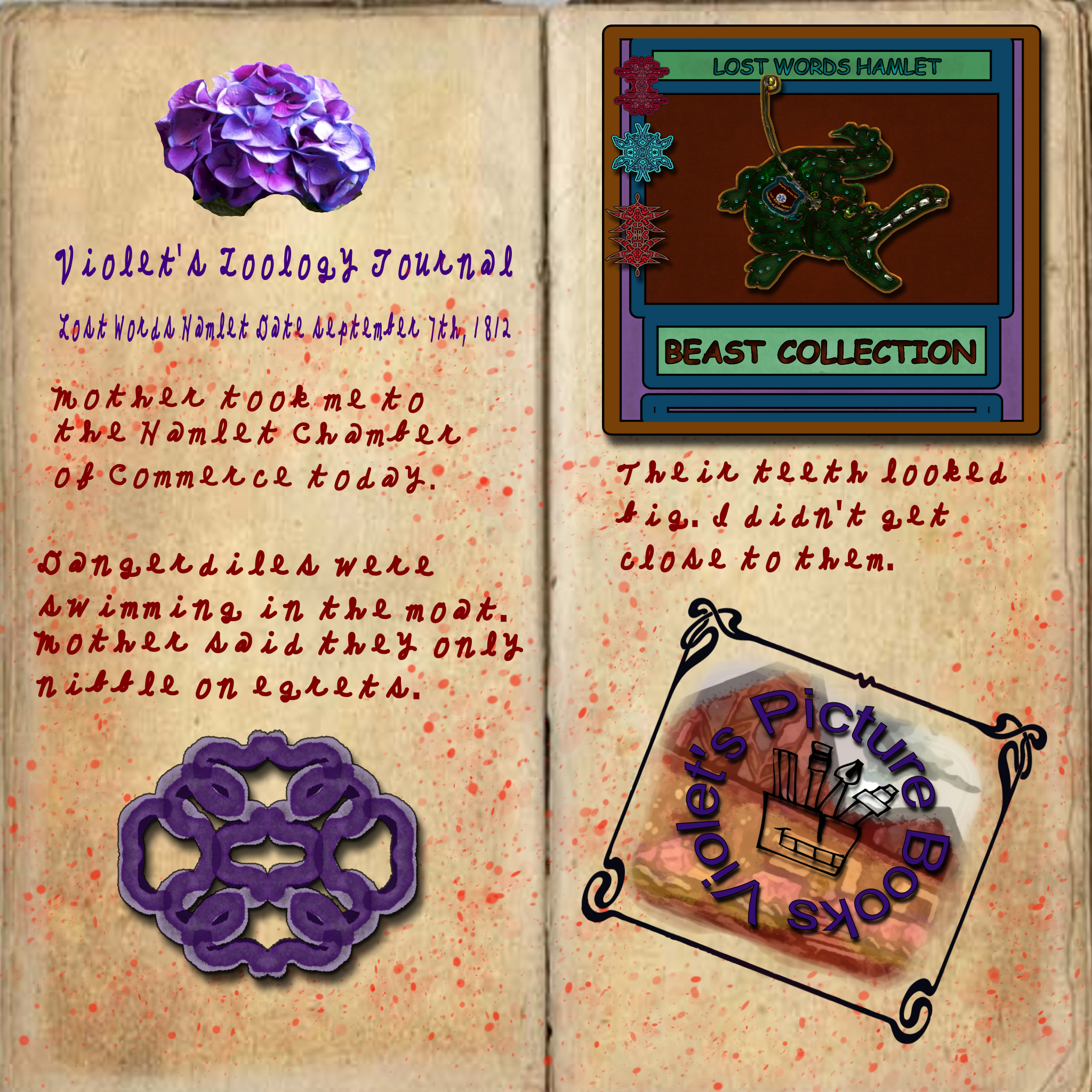Dangerdile
Danger
Dangerdiles are not pets. They are highly trained service beasts.
Dangerdiles are green and covered with spots. They have large teeth. Their squatty legs make crawling through sand easier. Dangerdiles prefer to live in a moat surrounded by white egrets.
Basic Information
Anatomy
The dangerdile suffers from impaired eyesight, so handlers wear bright red hazmat suits. Over the last 5,237 years, colorblind dangerdiles ate two security agents. The Diles apologized profusely by rolling over and showing their humble belly to trainers. They continue to roll over. Whether they are apologizing for eating a tourist is unknown. No one is studying this matter.
Genetics and Reproduction
Female Dangerdiles lay one egg every 90 days. Male Dangerdiles sit on the eggs, while the female looks for a tasty egret to feed her young after it’s hatched. She removes her security badge during hatching. A Dangerdile without a badge is inappropriately dangerous. Security personnel know not to pet these maternal beasts.
Growth Rate & Stages
Young Dangerdiles grow up slowly.They like being petted by their oven mitten trainers. Sometimes a docile pup lays in the lap of a trainer. The Chamber of Commerce does not advise this practice. Sensitive and empathetic dangerdiles put themselves in danger. It is good to be nice, but not too nice. They have a job to do.
Additional Information
Perception and Sensory Capabilities
While their eyesight is weak, their hearing is a genetic wonder. When an angry Hamlet resident tries to reach the Chamber of Commerce after hours, Dangerdiles loiter near the swinging bridge. One little ping alerts them to swish their powerful tails and move the bridge. The angry resident retreats. No one wants to swim in a Dangerdile infested moat.
Scientific Name
crocidillydanger
Origin/Ancestry






Comments